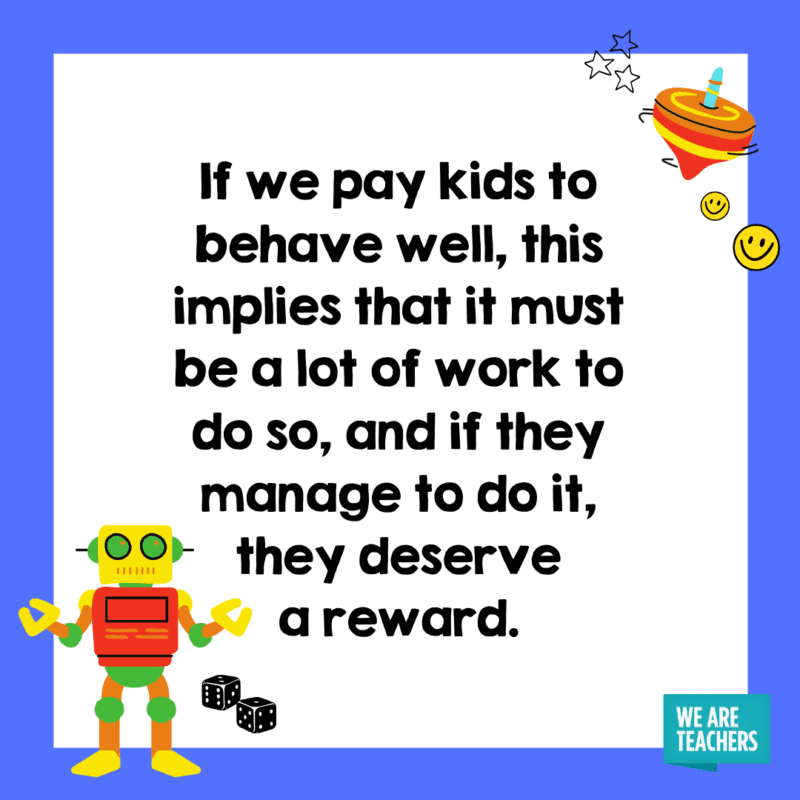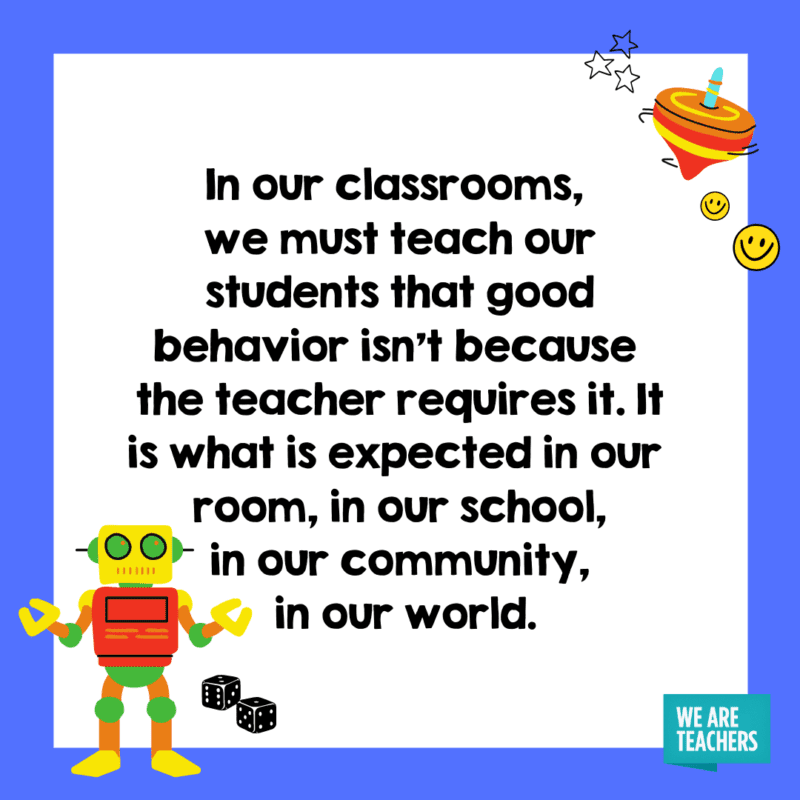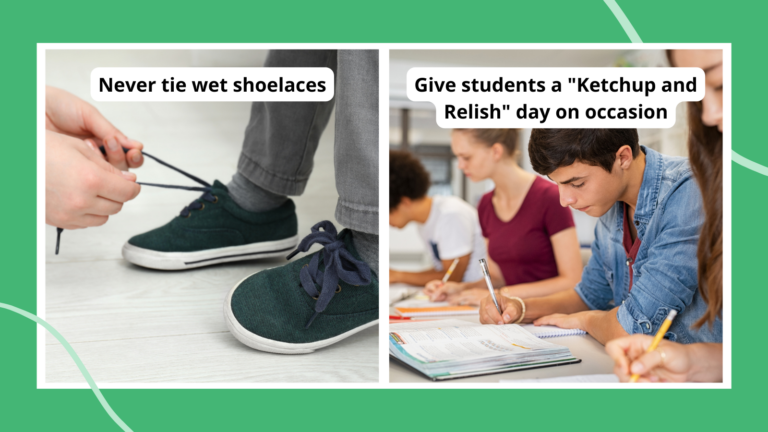For the past five years, I have been a teacher mentor at my school. My job is to work with new teachers entering the field and make sure we set them up for success in the classroom. Everything between us is confidential; I do not “report back” to anyone. I’m merely there to fail forward with the teacher as they navigate the world of education.
When I reach out to my mentees over the summer to touch base, inevitably, the first thing the teacher tells me is how they figured out their classroom management techniques. This often consists of some kind of reward and prize system, and I ask them to tell me more about the system and why they chose it.
“Well, this is a great way to improve student behavior. It’s good for them to work towards something. Y’know like, ‘if you all pay attention, you can earn more class recess time.’ Or, at the end of the week, they can earn prizes from my prize box.”
“I see. So you feel this is the best way to get kids to behave in your classroom?”
“I mean, how else is it possible? They aren’t just going to behave on their own.”
While it is true that “do this and get that” rewards can make improvements in behavior for the short term, in my opinion, they do not work all year round. Not only that, they rarely leave any kind of lasting impression on the student as to what proper behavior looks like and sounds like, which, to be honest, should be our bigger goal: To create students who learn how to behave in all environments, at any age, inside or outside the classroom walls.
The secret? Creating a classroom that nurtures intrinsic motivation.
Easy? No.
Worth it? Yes.
Here’s why rewards and prizes just don’t work:
[contextly_auto_sidebar]
“If You Give a Mouse a Cookie…”
We all know how this story goes. One teacher I worked with insisted that giving out prizes was the best route for his classroom. He used his own money to purchase little prizes that he would give out each week. After a few weeks, he said to me, “See! Look how well it works. I told you!”
I smiled and nodded, knowing what was going to happen. And sure enough, a week later, it did. The kids told him his prizes were “boring” and “so small.” Not to mention, they had to wait “all week. Why can’t we cash in for prizes earlier in the week?” I watched as he ran to the store each week now to get “bigger and better” prizes (which meant the cost of his prizes went up too!), and he struggled to find a way to give out prizes more frequently. He still insisted it was better than trying anything else, and I wonder, to this day, how much money he spent that year, out of his own pocket, to purchase rewards.
Anyone who has tried using rewards knows that what is exciting at first becomes old pretty fast. And it even gets worse. Alfie Kohn, author of Punished by Rewards, says, “Children are apt to become less concerned about others’ well-being if they were rewarded earlier for helping or sharing.“
What’s the Message?
Think about it. When in your life do you get rewarded? When you eat breakfast? No. When you take a shower? No. When you go to work and do your job? Yup. That’s because we get paid for work. So if we “pay” kids to behave well, this implies that it must be a lot of work to do so, and if they manage to do it, they deserve a reward. I don’t know about you, but once I know how hard something is, I’m not exactly running to do it.

Rewards can even backfire. The authors of Positive Discipline for Teachers reveal that in one classroom, “the sticker chart became so distressing for the other students that some of them who loved school started to tell their parents they didn’t want to go to school.”
Be a Good Citizen
Why do we pick up trash we see outside? Stop at a red light? Pay for items in a store? Not because we get prizes. Rather, because we are good citizens who live in a wonderfully free country, and we want it to stay that way. We abide by the rules because we know that, without them, things will be chaotic and maybe even dangerous! There should be no price tag on things we do because “that’s what good citizens do.” We pick up litter outside because we are intrinsically motivated to keep our environment clean.
Cars stop at a red light because we are intrinsically motivated to keep our communities safe. People pay for items in a store because it costs time and money to get a product to the shelf, and we need to contribute to that. So too, in our classrooms, we must teach our students that good behavior isn’t because the teacher requires it. It is what is expected in our room, in our school, in our community, in our world. There is no reward for something we expect of each other as human beings.

So, How Do You Motivate Your Class?
If rewards and prizes don’t work, then how do you motivate your students? Here’s how:
Intrinsic Motivation
When kids behave, they show respect for themselves and their friends. They realize how each person contributes to the classroom. They feel a sense of belonging and learn to appreciate that their community needs them and appreciates them in return. No, they won’t realize that unless you point it out, model it, and talk about it A LOT. We need to help them realize that this is a classroom they want to come to each day. They will WANT to behave so as not to let their classmates and teachers down.
Recognize the Contributions
Of course, like adults, children want to be recognized for their accomplishments and contributions. And they should be! My favorite way to use “prizes” in my classroom is to reward unexpectedly. For example, “Class, you have just spent the past six weeks working so hard through the writing process. I am so impressed at the way your personal narratives came out! Let’s have a pizza party to celebrate the way you have really learned to be authors!” Our goal is to reward the learning process, not the behavior.
Of course, there are exceptions. Some individual students with individual needs may need extrinsic support before being intrinsically motivated. So we take individual cases one at a time. However, as a general classroom management technique, let’s leave the rewards to the trainers at the zoo!
Do you believe rewards and prizes don’t work? Share in the comments below!
Plus, Ways to Encourage Good Behavior, Without Junky Prizes or Sugary Treats.


